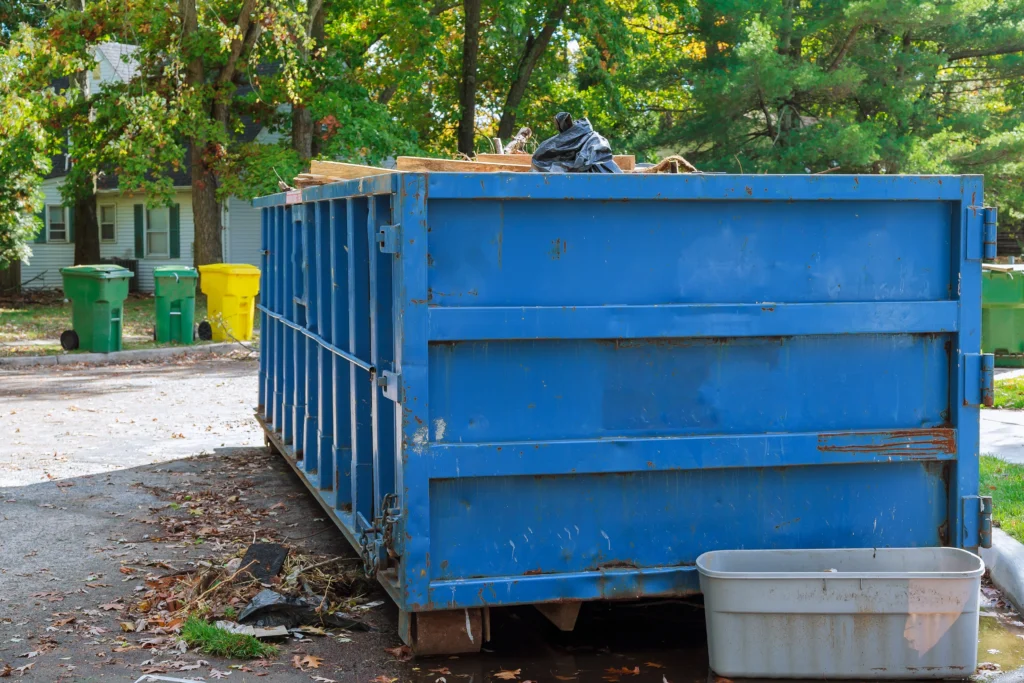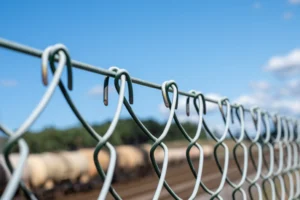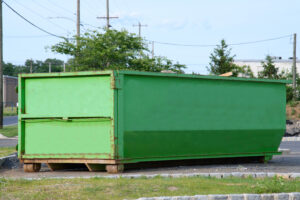Although a dumpster provides an easy way to get rid of garbage during renovations or clean-outs, it is important to know that not everything can go into this temporary trash container. Other items can cause significant damage to the environment, public safety or cause you unnecessary fines.
Understanding the terms and conditions of these sizable containers streamlines your project without causing any disruptions. This article discusses a number of items that you should not throw in a rental dumpster, explaining the possible repercussions and appropriate substitutes for disposal.
Chemicals
Waste companies do not allow disposal of harmful chemicals in a dumpster as it presents a major risk to the environment and garbage handlers. A few examples include paint, aerosols, cleaners, and harsh compounds. Filling this container with harmful contents poses the risk of hazardous chemical reactions during transit.

Don’t put just anything in your dumpster
Hazardous garbage can also contaminate other objects in the dumpster, making them unfit for recycling or other purposes. Landfills cannot also accommodate these materials as they emphasize the need for specialized treatment facilities to stop leakage of hazardous chemical reactions during transit. You can always turn to authorized collection centers for appropriate disposal of hazardous wastes to reduce the danger to people and the environment.
Biological Wastes
Waste collection firms advise against dumping of biological waste in a dumpster for a number of reasons. First, these materials may contain germs and other dangerous pathogens. Biological waste breaks down quickly in a warm atmosphere if left unchecked, which provides an ideal setting for germs to grow. Anyone who encounters the trash or its contents is seriously at risk for health problems associated with this type of waste. Improper disposal can also lead to environmental pollution. Tissues and bodily fluids can leak into the ground, contaminating water supplies and endangering animals in the ecosystem. Certain biological waste may contain hazardous materials like medical equipment or prescription drugs that require specific handling.
Liquids
Dumpsters can only handle solid garbage and not liquids because as they can easily seep out of the container. It increases the chances of contaminating the nearby water and soil, which might be bad for the ecosystem. Liquids also have the potential to increase the dumpster’s weight over what is safe to lift. Additional weight makes transportation challenging and places trash management workers in danger. Lastly, if incorrectly disposed of in a dumpster, some liquids like combustible or toxic compounds might result in chemical reactions, fires, or even explosions. Therefore, it is essential to identify other liquid disposal solutions to guarantee safety and safeguard the environment.
Flammables
Low ignition points make it easy for materials like paint thinners, gasoline, and oil to catch fire when sparks or spontaneous combustion occur. Friction during transit or a sealed container inside a heated dumpster might start a fire, putting everyone in danger including workers, the surrounding area, and possibly even your home. Furthermore, hazardous pollutants might seep out of the container, damaging the surrounding area. Therefore, combustible items must be properly disposed of through approved hazardous waste facilities in order to provide both safety and environmental protection.
Electronics
Some of the harmful compounds present in many electrical devices are mercury, lead and arsenic. Landfills do not have the capacity to handle this kind of trash safely. The chemical contents of disposed electronics have the potential to leak out, harming wildlife and perhaps affecting agricultural produce through soil or water contamination. Furthermore, electronics take up considerable space in landfills and rarely undergo decomposition. Several states and regions have laws against inappropriate e-waste disposal, and you may incur penalties or fines for breaking these rules. Therefore, it is essential to dispose of electronics responsibly by using approved recycling facilities or holding freebie events in to protect the environment and adhere to legal requirements.
Overweight Items
Overloading dumpsters can result in structural damage as they only handle a limited amount of weight. This may result in potential injury to garbage collecting workers and safety risks during transportation. Overweight restrictions also cause problems when transporting heavy objects. There are weight limits for incoming garbage at landfills, and the disposal business faces steep fines when they exceed these limits. Following the weight restrictions specified by your dumpster rental company is essential to preventing these issues and guaranteeing responsible and safe disposal.
While renting a dumpster is a simple way to get rid of rubbish, there are some materials that need to be disposed of differently because of environmental or safety risks. Always ask your rental provider for a detailed list of items that they do not allow. Hazardous waste should be disposed of responsibly through approved methods to safeguard the environment, sanitation personnel, and the public from potential danger. You can use your dumpster rental safely and legally by adhering to these requirements.




